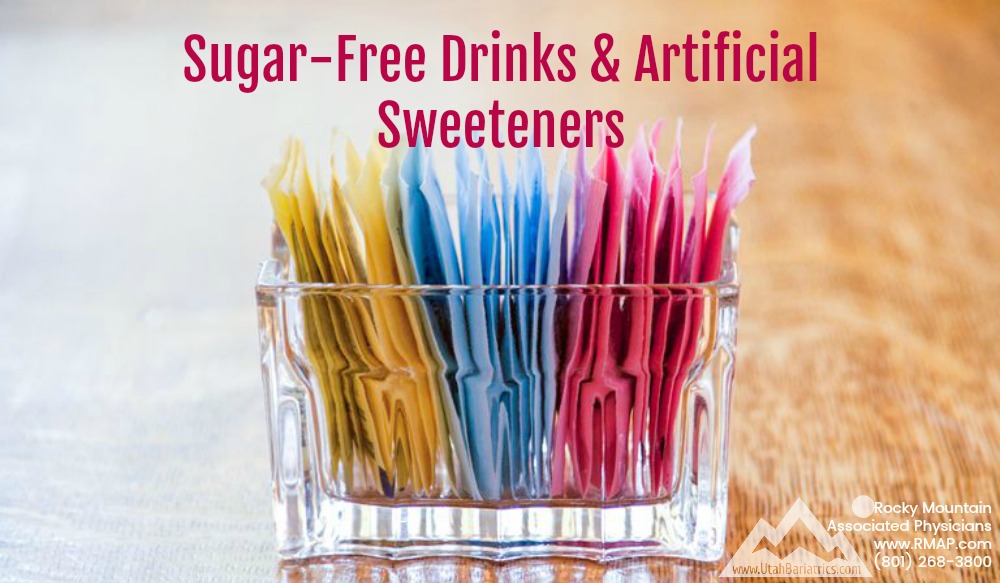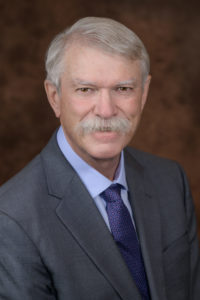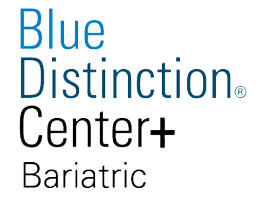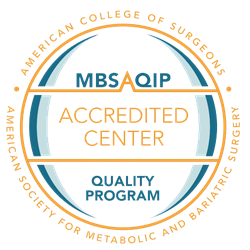Why are Sugar-Free Drinks and Artificial Sweeteners Bad? FAQ with Dr. Steven Simper
By: Dr. Steven C. Simper, MD, FACS

Learn more about weight loss surgery at Rocky Mountain Associated Physicians www.RMAP.com (801) 268-3800
Question: Why are sugar-free drinks and artificial sweeteners not good for us?
Dr. Simper’s Answer: It would seem obvious that drinking sugary drinks is bad; after all, they contain empty calories. The simple solution would be to drink diet drinks, right? Actually, the answer is not!
Researchers looked at genetically identical rats. One group of rats drank regular Cola, the other drank diet Cola. The diet Cola rats became fat. A repeat study with artificial sweeteners and sugar water found the same results. Is the message to drink regular sodas? No. Sugary drinks are bad and diet drinks are bad. Studies in humans found that when drinking diet soda with meals, most subjects consume more calories than if they drank water or regular drinks. Artificial sweeteners are probably one of the most appetite stimulants that we know of today. Why?
The reason for this is unclear, but we do know about one mechanism whereby artificial sweeteners activate the cephalic phase of digestion, vigorously. During this phase your stomach and digestive tract release enzymes and juices prior to eating, or at the onset of eating in preparation for food. You see food or smell food and start to salivate, and your stomach starts to growl. Then, when you consume the chemical sweeteners, insulin is release in anticipation of the sugar overload that doesn’t come. This makes you even hungrier. Plus, when you do eat food, the digestive juices are already present; this accelerates digestion and ensures that you more thoroughly digest and absorb more of the food, and therefore absorb more calories. You become a super absorber.
The real solution is to drink water, not sugary drinks or diet drinks (carbonated or not). A side note, Cola alone may have the same affect, but that’s a different subject.
About the Author:
 Dr. Steven Simper, MD, FACS, performed his first bariatric procedure in 1984 at Wilford Hall Medical Center in Texas. Currently, he performs laparoscopic gastric bypass, sleeve gastrectomy, duodenal switch, and revisional surgery. In addition to general surgery procedures.
Dr. Steven Simper, MD, FACS, performed his first bariatric procedure in 1984 at Wilford Hall Medical Center in Texas. Currently, he performs laparoscopic gastric bypass, sleeve gastrectomy, duodenal switch, and revisional surgery. In addition to general surgery procedures.
Links to related articles:
Artificial and Natural Sweeteners
Beat the Heat – Drink Your Water
What to Expect When You Reach Maintenance
www.RMAP.com
Rocky Mountain Associated Physicians
801-268-3800
1160 East 3900 South, Suite 4100
SLC, UT 84124













 Address: 1521 East 3900 South STE 100
Address: 1521 East 3900 South STE 100 Office: +
Office: +  Fax number (801) 268-3997
Fax number (801) 268-3997 Email: info@rmapinc.com
Email: info@rmapinc.com



